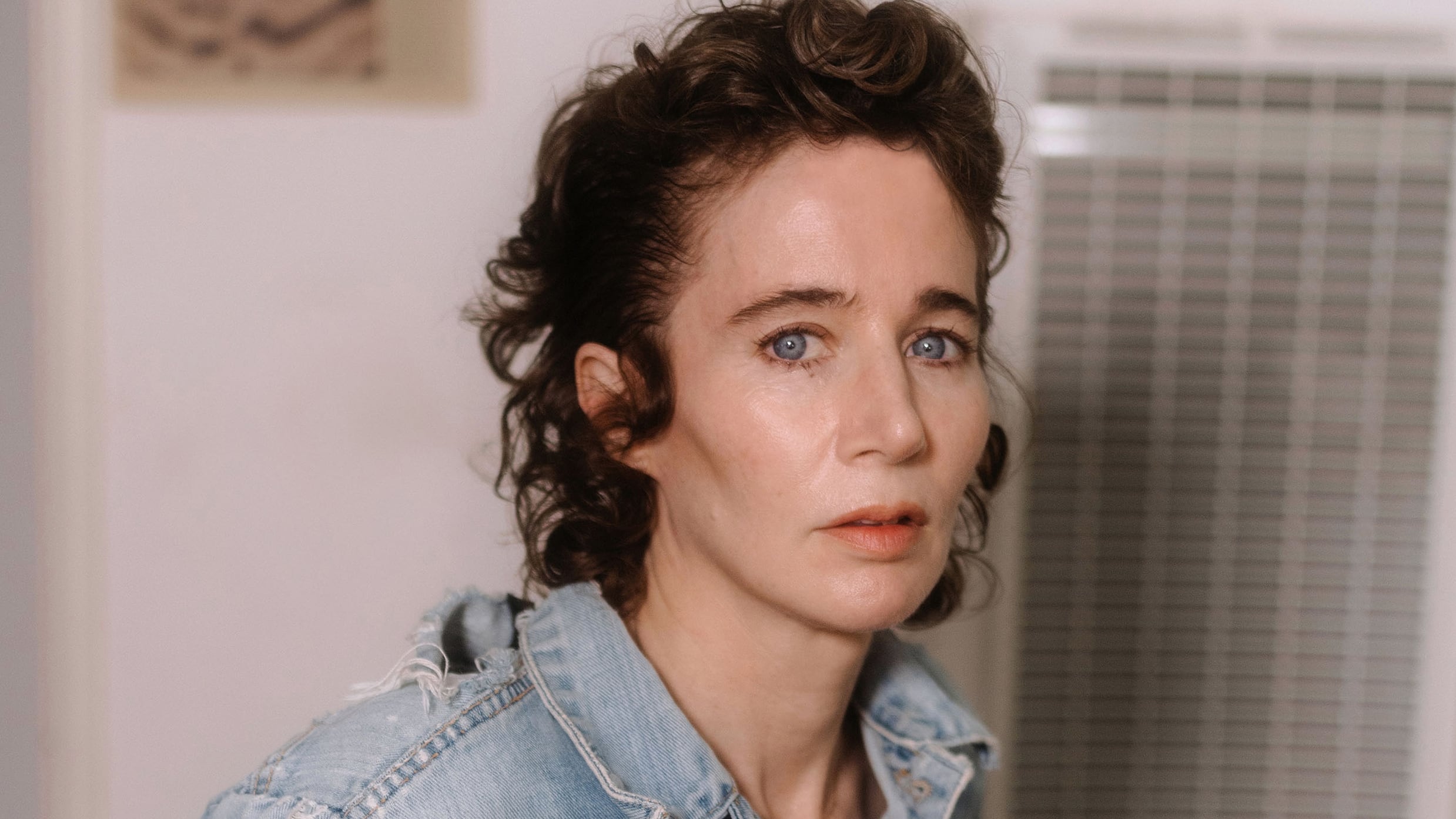Miranda July used to look forward to the future with unfettered enthusiasm. Throughout her 20s and 30s, it felt like she had so much to aspire to. The world was her oyster, etc. Then came her 40s.
“I started to have this worried feeling. Not workwise—I still felt the same in my own inner world—but it felt like the path ahead was kind of narrowing or cliffing off.” She says this last word with a wink in her voice, a nod to one of the themes of her new novel, All Fours (Riverhead Books, 336 pages, $29), which publishes on May 14, and she’ll be discussing it at Powell’s Books at Cedar Hills Crossing on May 22.
Feeling nervous about getting stuck in midlife, the narrator—an unnamed, 45-year-old multimedia artist, similar to the author—decides to kiss her partner and child goodbye for three weeks to take a cross-country road trip. This will be good for her! How brave! Alas, mere minutes after pulling onto the highway, she gets distracted and winds up staying at a motel only a short drive away from her house. Thus begins a different journey entirely.
When I met with July via Zoom in April, the writer, filmmaker and artist was rocking a tri-collar look: a pink polo under a blue-checkered button-up under a red blazer, all three collars popped to some harmonious degree. An auburn curl sat in a fluff toward the middle of her forehead. July, whose 2007 debut collection, No One Belongs Here More Than You, was an instant hit (and winner of the Frank O’Connor International Short Story Award), creates art across genres that explores the human condition with unique honesty and refreshing wit. She is, as George Saunders calls her, “one of our most important literary writers.”
The trifecta icon reflects on the beginning seeds of All Fours, stemming around examining women’s middle age. “There was so little imagery or stories or songs or anything about what was interesting or exciting about the time ahead, and instead it was sort of like one big misogynist punchline,” July says. “[At first,] I sort of felt like, OK, I guess the only real option is to be graceful.”
She uses air quotes to add “age gracefully,” saying that women are expected to “not make a big fuss about it.”
But that didn’t seem fair. So she did what artists do: explored a hard question and talked to other women who were feeling similarly befuddled about life after 40-ish.
“I had shame about how much I was thinking about it—not just shame about like, oh, I’m not going to be young for the rest of my life but also just that I was dwelling on it,” July says. “I wondered if that shame is this sort of cork, holding back this really vivid and complex reality, because as I was getting older, it was actually getting more interesting and exciting! The conversations I was having with other women were radical. Everyone was questioning everything, but it was all kind of this whisper network because of the shame, you know.”
July dipped her toes into going public with this “whisper network” with a story titled “The Metal Bowl,” published in The New Yorker in 2017. She says the response from female peers was really intense, and July realized, “I’m not alone. I knew that now for a fact. And so I very much wrote [All Fours] in conversation with this urgent, kind of ecstatic heart-pounding feeling the whole time. Because I felt like I was writing for these women and with them, and I was just so excited and just wanted to do right by us.”
July isn’t a stranger to exploring the inevitability of life’s inching onward. Her 2011 literary hit It Chooses You and the subsequent film The Future both explore the theme of time: How are we supposed to be spending it in relation to ourselves and our relationships? But with All Fours, July is tackling more, and differently. To open up a conversation with more readers, she had to rethink the approachability of her narrator.
“I’m used to having these openly flawed characters. They’re not even necessarily nice,” July says, thinking of Clee, a character in her debut novel, The First Bad Man. “I had a different template for this one,” she says about All Fours. At first, she found herself freely writing all the bad, unlikable stuff people might think about themselves or other women, but soon realized she needed a narrator who wasn’t totally “defanged” and yet she can’t be awful.
“I think striking that balance of having her be really real was kind of a new challenge,” July says. “And part of that had to do with, like, I want everyone to feel invited into this book. I want [the narrator] to feel safe, in a way.”
The storytelling in All Fours is July-esque in its uniqueness and deadpan humor, but it’s something more, too. It’s about art and creating; marriage dynamics and gender roles; women’s desire and being desired. In one scene, the narrator and her friend decipher a chart depicting the dramatic drop women’s estrogen levels start taking around age 45. “We’re about to fall off a cliff. We’re going to be totally different people in a few years,” says the narrator, who is baffled by the list of menopause symptoms she’s never heard of, when in contrast, Viagra commercials were abundant. With All Fours, July opens up a largely un-had conversation about women, or one spoken at a low volume.
“I feel like the conversation can now happen aloud, you know? Like, not whispered,” she says. “That’s my big dream, sort of, is that shift happens.”
GO: See Miranda July in conversation with Lidia Yuknavitch at Powell’s Books at Cedar Hills Crossing, 3415 SW Cedar Hills Blvd., Beaverton, powells.com. 6 pm Wednesday, May 22. Free.
